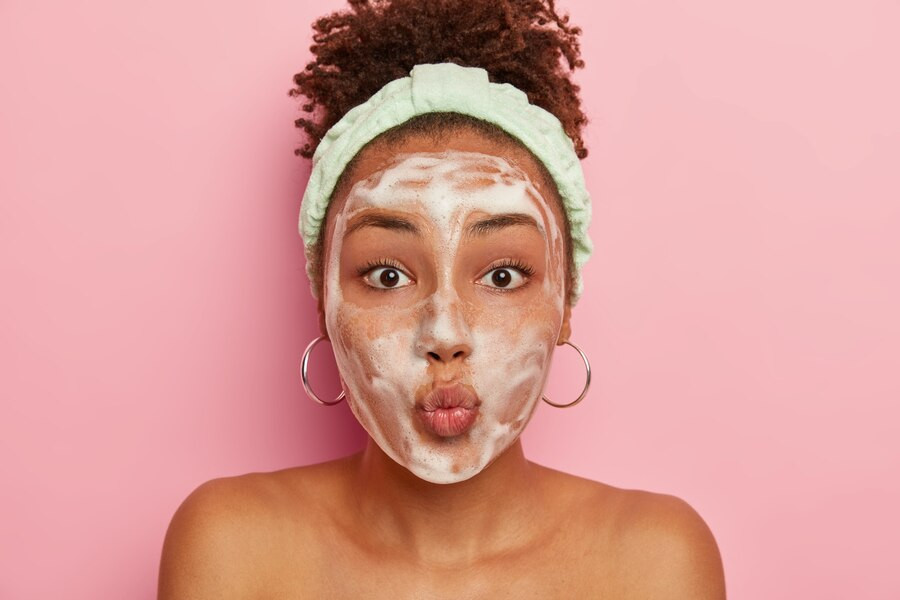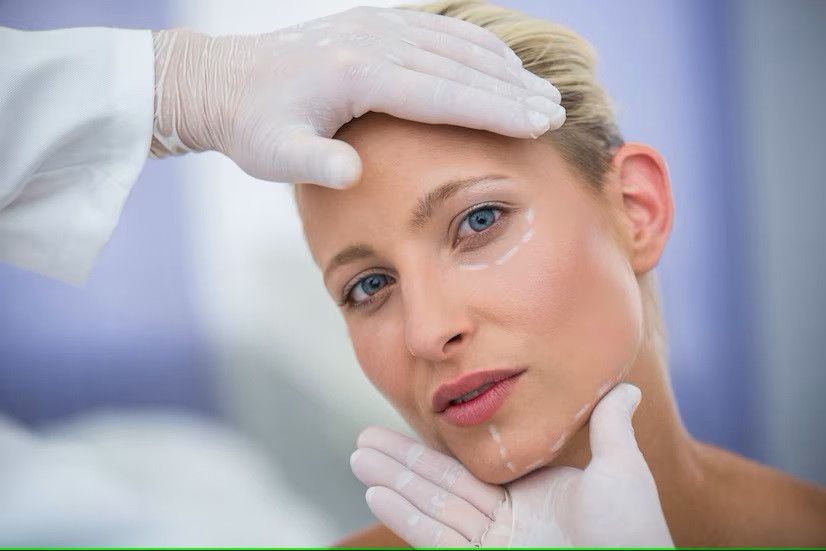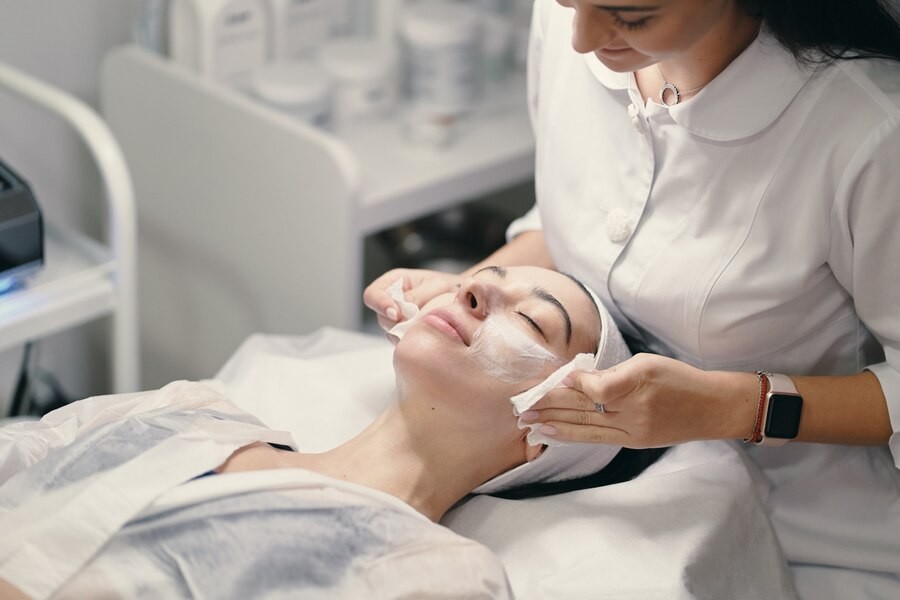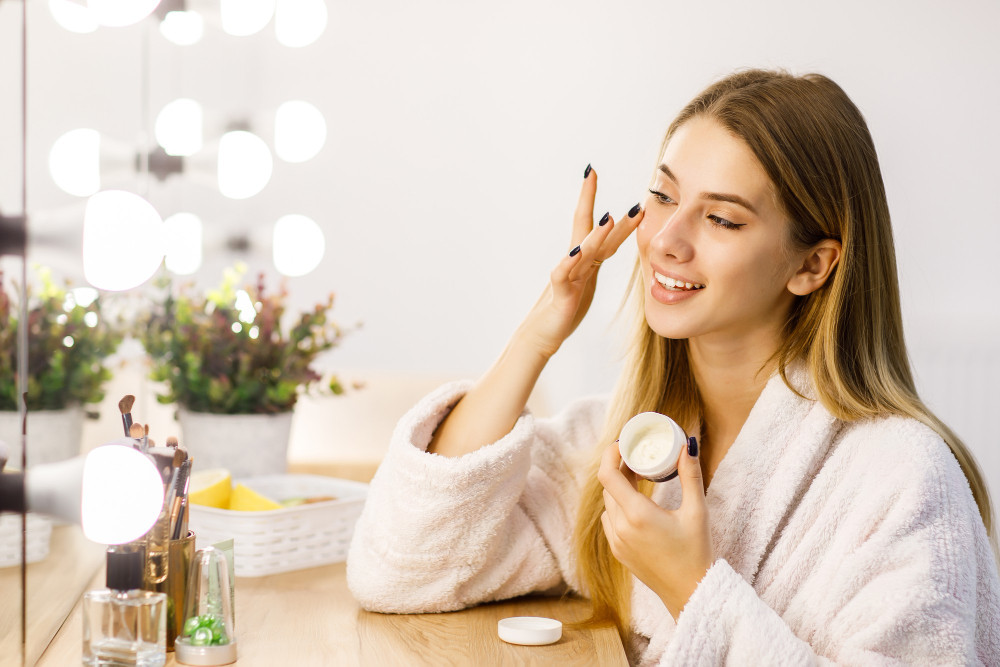Exfoliation is an important step in skincare, particularly for facial skin, as it improves skin texture, reduces clogged pores, acne, and increases blood circulation to the skin's surface. Despite its many benefits, facial exfoliation should not be done too frequently, as it can damage and irritate the skin.
Knowing the two types of facial exfoliation
To begin, you should understand that there are two primary methods for exfoliating the skin:
- Mechanical exfoliation is the removal of dead skin cells with the use of a tool or scrub containing fine granules such as sugar, salt, seeds, or other particles that are manually rubbed into the skin
Chemical exfoliation is the gentle removal of dead skin cells using chemicals like alpha hydroxy acids (AHA), beta hydroxy acids (BHA), or fruit enzymes
Read more: Characteristics Of Dry Skin And Common Skin Problems
How to safely exfoliate your face at home
Everyone has their own preferences for exfoliation methods. However, you must understand how to properly exfoliate your face at home. According to dermatologists, these are the recommended ways:
Choosing the right method
Before exfoliating your face, make sure the method you use is appropriate for your skin type. Chemical exfoliation is best suited for dry, sensitive, or acne-prone skin. Chemical-based products, such as AHA and BHA, remove dead skin cells gently and without causing physical friction. This helps to reduce irritation on sensitive skin.
Oily and thick skin, on the other hand, can benefit from mechanical exfoliation to remove excess oil buildup and dead skin cells.
Choosing an exfoliating product
The next step is to select the appropriate exfoliating product. Certain ingredients, such as retinoids or benzoyl peroxide, can make the skin more sensitive and prone to excessive flaking. It's better to choose products like AHA or BHA that are gentler on the skin.
Do it gently
Exfoliating should be done gently, whether mechanically or chemically. To avoid damaging the skin's natural protection, use small circular motions and light strokes, and avoid applying too much pressure. Also, pay attention to how your skin reacts while exfoliating. If you feel any irritation, redness or burning sensation, then stop immediately and rinse the skin with clean water.
Read more: Characteristics and Problems With Oily Skin
Keep your skin moisturized
After exfoliating, apply a moisturizer to restore and maintain skin moisture. Without enough moisture, exfoliation will leave the skin dry, rough, and even irritated.
Furthermore, well-hydrated skin is better able to maintain pH balance and combat environmental factors that can harm it.
Finding the right schedule
Skin undergoes changes and routines due to weather or season so the need to exfoliate is not always the same. Because colder weather causes dry skin, you should reduce the frequency of exfoliation. In hotter weather, however, the skin becomes more oily, necessitating an increase in the frequency of exfoliation.
If you are unsure about exfoliating at home, you can consult a dermatologist or go to a professional beauty clinic.
If you need medical advice or consultation, you can either visit a doctor or make use of the consultation features that are available in the Ai Care application by downloading the Ai Care application from the App Store or Play Store.
Looking for more tips and tricks for health, first aid, and other home treatments? Click here!
- dr. Monica Salim
Sasha Santhakumar (2023). How can a person exfoliate their face naturally?. Available from: https://www.medicalnewstoday.com/articles/exfoliate-face-naturally
American Academy of Dermatology Association. How to Safely Exfoliate at Home. Available from: https://www.aad.org/public/everyday-care/skin-care-secrets/routine/safely-exfoliate-at-home
WebMD (2023). What to Know About Skin Exfoliation. Available from: https://www.webmd.com/beauty/what-to-know-skin-exfoliation
Lauren Sharkey (2020). Everything You Need to Know About Chemical Exfoliation. Available from: https://www.healthline.com/health/beauty-skin-care/chemical-exfoliation
Evan Starkman (2023). AHA and BHA for Skin: What to Know. Available from: https://www.webmd.com/beauty/aha-bha-skin-exfoliate
Mary Anne Dunkin (2023). Retinoid Treatment and Your Skin. Available from: https://www.webmd.com/beauty/retinoid-gel-and-cream-treatments
Angela Palmer (2023). Salicylic Acid vs. Benzoyl Peroxide For Acne. Available from: https://www.verywellhealth.com/benzoyl-peroxide-vs-salicylic-acid-15844
Harvard Medical School (2019). Moisturizers: Do they work?. Available from: https://www.health.harvard.edu/staying-healthy/moisturizers-do-they-work











